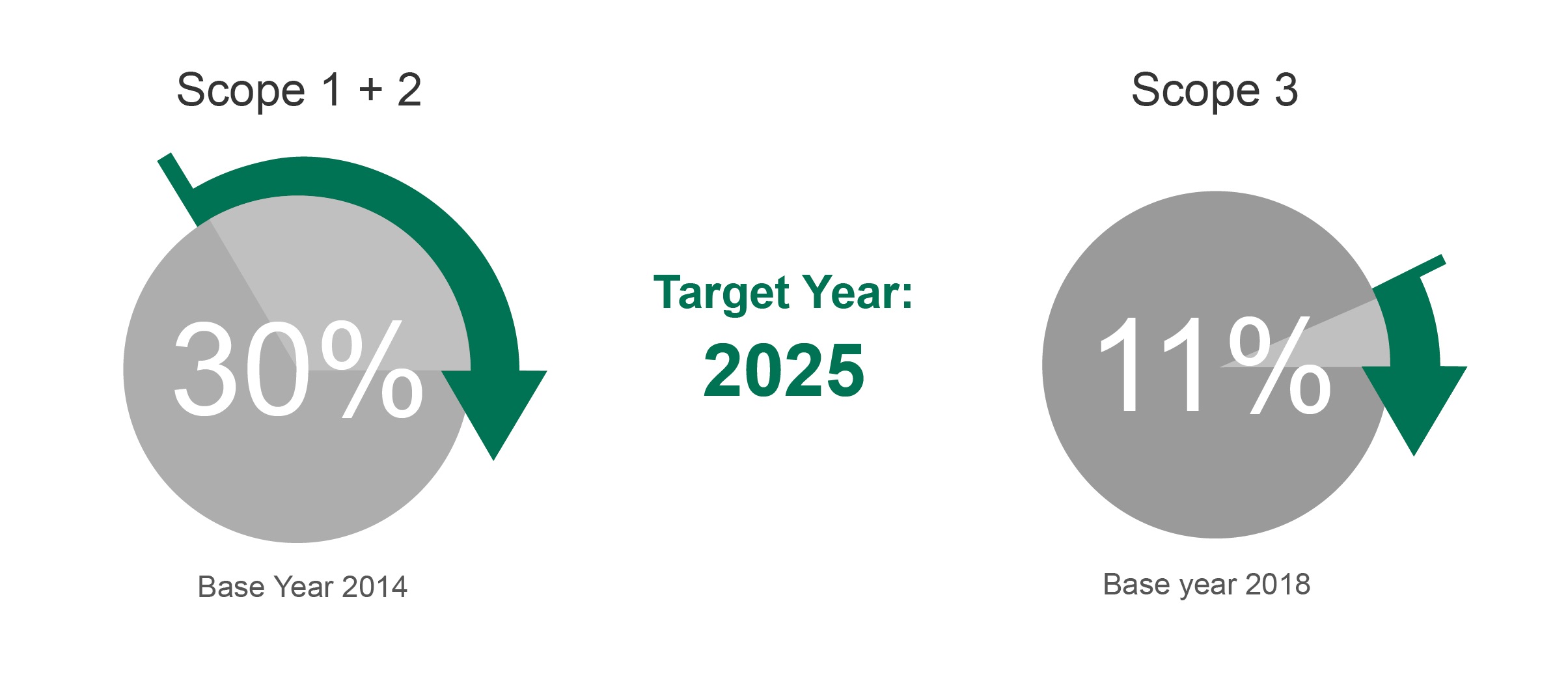Climate change is a material issue for ERM. Although the impact of our projects with clients far exceeds the impact of our own emissions, we are doing our part to reduce our carbon footprint. We work with leading companies to set greenhouse gas (GHG) emission reductions targets based on science, and we believe it is important for us to take a similarly rigorous approach to reducing our own emissions.
ERM has therefore set ambitious science-based targets to reduce our greenhouse gas emissions as part of a unified private sector response to the global risks of climate change. Validated by the Science Based Targets Initiative, this makes us an early adopter among the professional services sector. The Science Based Targets Initiative is a collaboration between the Carbon Disclosure Project, the UN Global Compact, World Resources Institute and the World Wide Fund for Nature.
ERM has set absolute targets for 2025 to:
- Reduce our GHG emissions from direct emissions (Scope 1) and purchased energy (Scope 2) by 30 percent (compared to 2014). To achieve this target we will take measures including transitioning to renewable energy in our offices.
- Reduce our indirect emissions in our value chain (Scope 3) by 11 percent from a 2018 base year. This ambitious target will be achieved by reducing business travel and emissions from employee commuting.

These targets have been validated to be in line with the level of decarbonization required to keep global temperature increase well below 2 degrees Celsius compared to pre-industrial levels.
Over the past several years, ERM has worked hard to reduce our Scope 1 and Scope 2 emissions, and our science-based targets build on these efforts. Given the nature of our business, which involves significant travel to project locations, Scope 3 emission reductions are very challenging. We have adopted an integrated approach to managing these emissions, which involves measures taken by ERM as well as changes in behavior by our employees.
A Senior Leadership Team (SLT) Working Group has been established with senior operational and technical leaders from across the business to provide oversight and guidance on the implementation plan to meet the Science Based targets for 2025. The SLT Working Group will report into the Executive Committee Sustainability Working Group on a regular basis.
We have identified priority areas where we can have the greatest impact, including transitioning to renewable energy in all of our offices, and additional measures to improve environmental performance in our offices. For our indirect emissions from business travel and employee commuting, we are working across the business with senior leaders and members of our employee-led Sustainability Network to ensure that we travel more sustainably. This will influence not only how we travel, but also where we locate our offices in the future to make it easier for employees to use public transport, cycle or walk to work.
ERM is the business of sustainability; therefore it is important that we take a leadership role on key issues such as this. Business is demonstrating its commitment to delivering its part of the Paris Climate Agreement through initiatives like the Science Based Targets Initiative – and in turn, this is what ERM is doing.
The goals we have set are challenging for our business, particularly in the context of our growth plan. At the same time however, this is also providing a real example to the corporate world of how they too can transition to a low-carbon economy while maintaining their competitive advantage. It's something that we are perfectly positioned to do ourselves and at the same time also help our clients with.
Keryn James -
ERM Group CEO
